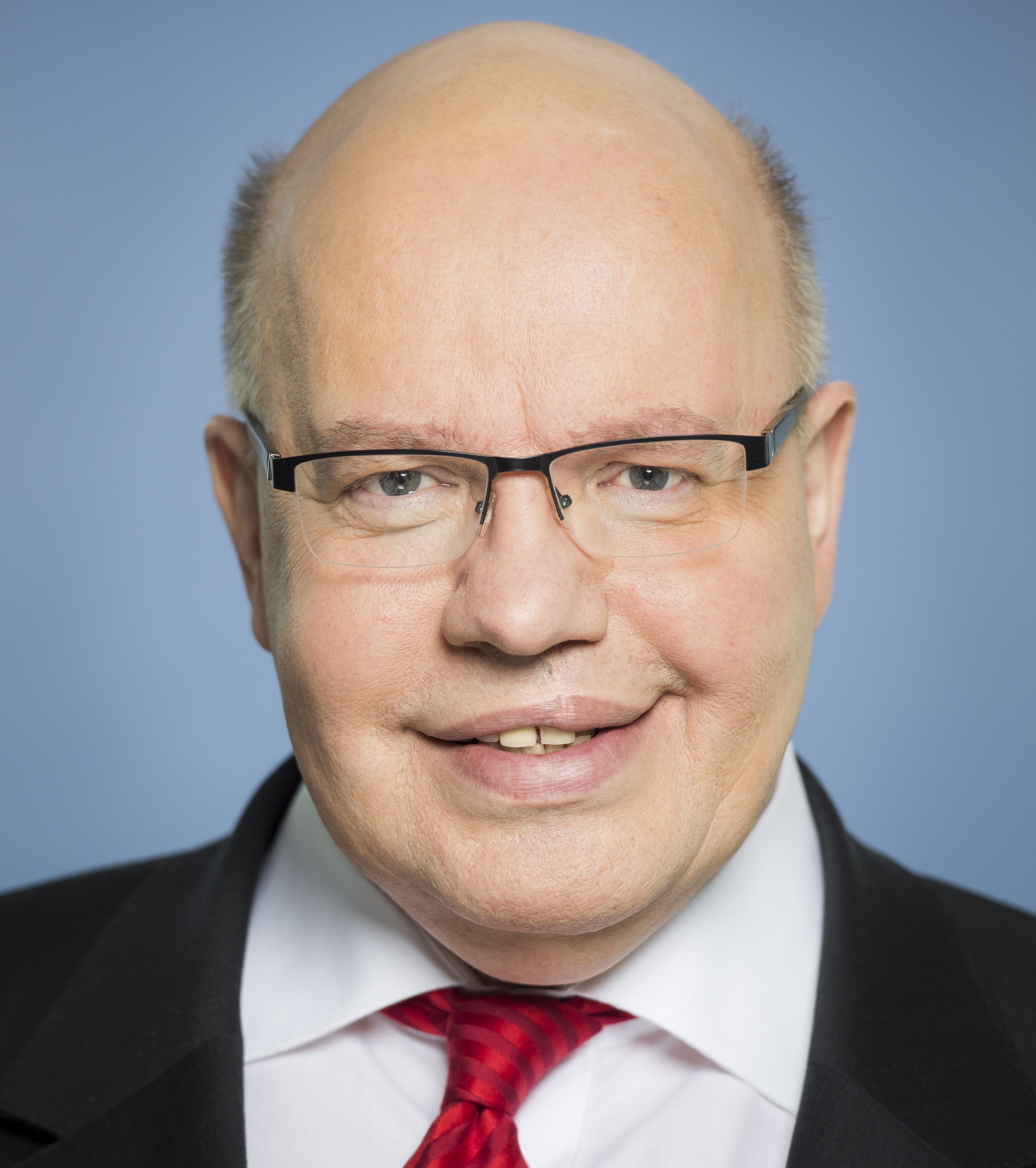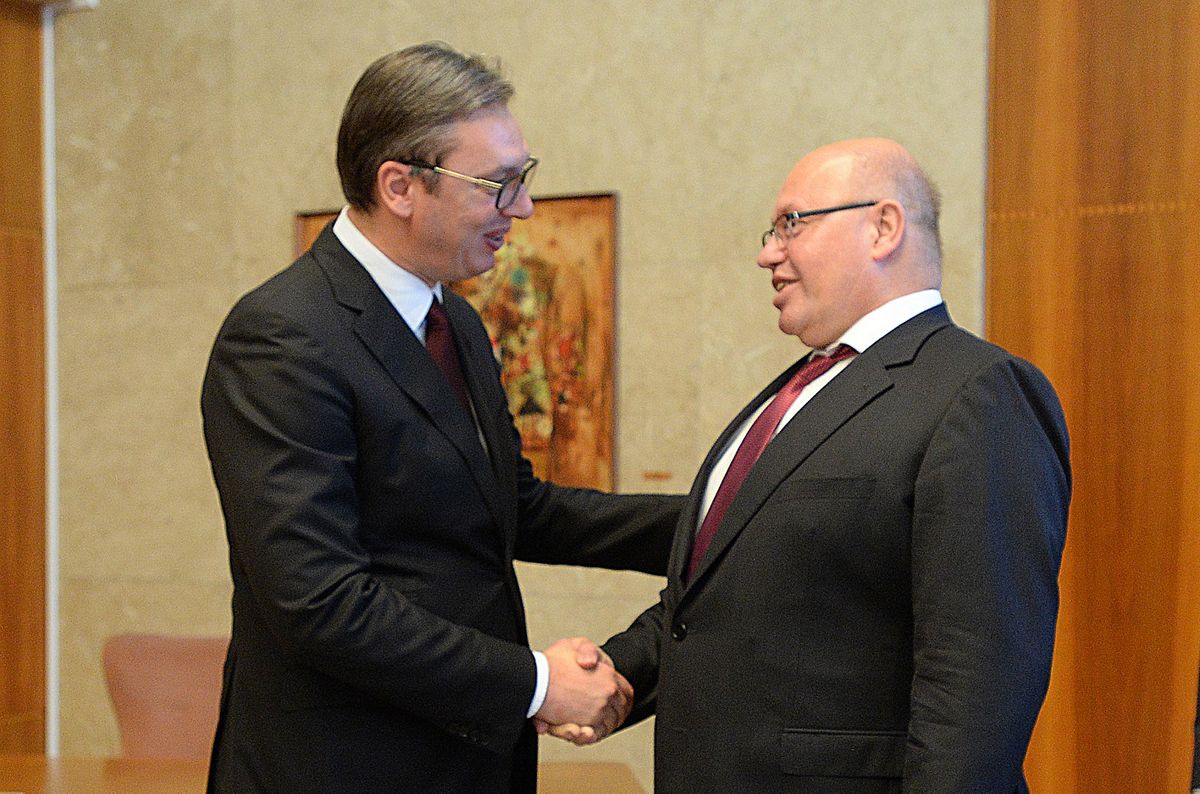The economic dynamism in the countries I visited is highly promising, and German companies are increasing their levels of trade and investment there

Minister of Economy and Energy of the Federal Republic of Germany Peter Altmaier has come to Serbia accompanied by a large business delegation with the aim of discussing concrete measures for further improvement of cooperation between the two countries’ companies. He assessed that the Serbia-Germany relations in recent years have been excellent and that there are conditions for their improvement. Minister Altmaier has come to Serbia accompanied by a large business delegation with the aim of discussing concrete measures for further improvement of cooperation between the two countries’ companies. Altmaier expressed confidence that his visit will yield concrete results in the further strengthening of economic cooperation between Serbia and Germany. In an exclusive interview for the November issue of Diplomacy & Commerce magazine, German Federal Economy Minister Peter Altmaier spoke about the EU and the Western Balkan states.
You have visited Croatia, Serbia and Montenegro. What was the reason for this official visit and what were your impressions?
— I attach particular importance to the region of south-eastern Europe. I see a great opportunity for us to be able to complete the unification of continental Europe through the continued convergence of the countries in the region to the EU. I just visited Croatia, the newest EU Member State, and Montenegro and Serbia, two countries which are actively negotiating their accession to the EU with the European Commission. My impressions are extremely positive. The economic dynamism in the countries I visited is highly promising, and German companies are increasing their levels of trade and investment there.
What conclusions will you take with you to Berlin, since you have visited Croatia, an EU member state, and Montenegro and Serbia, which are in the accession process?
— The most important conclusion is that EU enlargement is a success story which equally benefits both the countries in the region and the EU. And we should continue to work hard together on bringing the region closer to the EU – this will round off our EU and enrich us politically, economically and culturally.
How high is the Balkans on the list of priorities of the German economic and European policy? How do you feel about the situation in the Balkan countries today?
— Our conferences on the West-ern Balkans, which Chancellor Merkel launched in August 2014, have placed the political dialogue with the countries in the region high up on the political agenda. The wide-ranging initiatives taken since then are dubbed the “Berlin process”. Together with the Euro-pean Commission, the Regional Cooperation Council and of course the private sector, we have made great progress on regional co-operation and the expansion of the necessary infrastructure. We are addressing forward-looking topics, such as digitisation. One important joint challenge is the creation of jobs in the region and the securing of the skilled workers necessary for this.
Does official Berlin share the position of the French President Emmanuel Macron, who wants the EU first to reform itself (be-fore enlarging), or is Germany closer to the position of the European Commission whose officials are in favour of a parallel process of the Union’s integration and enlargement?
— The Bundestag voted by a large majority to commence accession negotiations with Albania and North Macedonia. It is regrettable that the European Council has not been able to arrive at a decision on this yet. I am convinced that we should begin the process of accession with Albania and North Macedonia as soon as possible. We must not lose time. Your forecasts for the coming year are very optimistic.
With Brexit, the US trade war and Chinese competition, we simply have to ask where does that optimism come from?
— Our forecasts are rather restrained. We are predicting growth of 0.5% this year, and somewhat higher growth of 1% next year. That is much less than in previous years. Of course, a major role is played by the difficult external economic environment. However, I am optimistic that we will leave this temporary slow period behind us. To do this, Germany will have to improve its business environment. I have made proposals for this in my SME Strategy, e.g. on corporate tax reform and targeted funding for tomorrow’s technologies.

MEETING WITH VUČIĆ
President of the Republic of Serbia Aleksandar Vučić met with the Minister for Economic Affairs and Energy of the Federal Republic of Germany Peter Altmaier, which was followed by the ceremony of signing of bilateral agreements on cooperation in the areas of economy and education bringing the 300 million euros of investments. Minister for Economic Affairs and Energy of the Federal Republic of Germany Peter Altmaier said that his country has learned the lesson from the Second World War and it wants to assure a good future. German companies Brose and MTU will open their facilities in Serbia, and on that occasion the agreements were signed today in the Palace of Serbia. “Relations between Serbia and Germany have been set in motion and started growing. Your Government seeks to employ the potentials of your country. We respect you and Germany wishes to offer an opportunity to the young people. Sixty thousand jobs depend on the German companies in Serbia”, said Minister Altmaier after the signing of the cooperation agreement and added that the trade exchange between the two countries is on the rise, but that there are still more potentials. “We talked about how to interconnect German and Serbian companies. I wish to congratulate both companies for the agreements signed today and to assure you that we will do all on our side to support you”, said Minister Altmaier. He emphasised that Germany wants cooperation and thanked for the conditions German companies are presented in Serbia. „We are able to ensure that the entire Western Balkans begets a European perspective and we know that Serbia will play a very important part in that”, said the Minister for Economic Affairs and Energy of FR Germany. President Vučić said that the facility for engines’ repair and maintenance will be first com-missioned, followed by subsequent production. „It seems to me that we do provide safety to the investors, but we still have much to adjust and improve. Our infrastructure is becoming better and better, both road and railway infrastructure. We have good, skilled labour force, talented and good people. There is no ideal ambience, but we are ready to hear of any problem and to make efforts to solve it. I can say with pleasure – welcome to Serbia which you can consider your second home”, said President Vučić and thanked the guests for their visit.